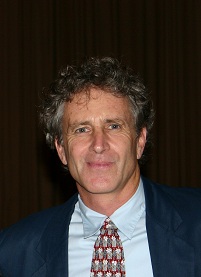Dr. Richard posted this letter to the editor of the The Spectator, VSU’s student newspaper, on SAVE’s facebook page today. I added the links and the images. -jsq
I would like to address the VSU community with this letter.
VSU Students, faculty, and staff, did you know that many of the clothes that we admire and purchase in the USA are made in places like Bangladesh? Indeed, some of our most popular brands of clothing, including GAP, Old Navy, and Banana Republic originate there. Perhaps you know that many Bangladeshi clothing manufacturers employ children as young as 12 years old who earn as little as $32 per month despite working up to 14 hours a day? It’s little wonder that so many of us can look so stylish—and for relatively little money.
If you didn’t already know this, does it matter to you now? Are you concerned that the money you spend supports sweatshops in Bangladesh
and elsewhere, perpetuating the misery of millions of our fellow human beings? Undoubtedly many of us are concerned, and we understand that we can make a difference in the world by being more judicious about where we shop. It’s why we choose to buy groceries at worker-friendly Publix rather than the anti-union Walmart Corporation. As ethical consumers become more aware of the need for greater social responsibility in the marketplace—exemplified by the Fair Trade movement—growing numbers producers are responding our demands. The result is that positive changes are taking place in numerous industries all over the world. You’ll recall that it was divestment that contributed to the end of the racist Apartheid system in South Africa and to a decline in smoking in the United States.
The same principles are at work right here on campus in S.A.V.E.’s fossil fuel divestment campaign. For the greater good, namely to stabilize the climate, S.A.V.E. is urging our administration to withdraw funds from corporations that produce and distribute carbon-based fuels and to reinvest them elsewhere. Divesting from oil and gas will encourage companies who specialize in producing energy to bring cleaner fuels to the market. Only by demanding corporate accountability and responsibility can we safeguard public health and allow our fragile planet begin to heal itself. Without this pressure, however, oil and gas companies have no incentive to change.
Some will argue that VSU’s coal, oil, and gas investments yield good returns, but I’d counter that there are plenty of other options promising solid returns these days. In fact, the last time I checked, the Standard and Poor’s 500 Index was up 23% from a year ago. So, the yield argument is a nonstarter. Moreover, if administrators really believed what they preach about education, they would see the fossil fuel problem holistically as members of S.A.V.E. do. They’d understand that what the professors in Geosciences are teaching their students is connected to what professors in Philosophy and Religious Studies, and professors in History, and Sociology, Anthropology, and Criminal Justice are teaching their students; namely, that we live in a globally interconnected world, and that failure to look beyond short-term time horizons is irresponsible. Indeed, there seems no better way to connect the disciplines—seen as an important issue in education—than over this issue.
As an educator, I am extremely proud of this group of student activists who have taken to heart everything that they have learned here at VSU. Let’s follow their lead.
Matthew Richard, Associate Professor, Department of Sociology, Anthropology, and Criminal Justice
P.S. S.A.V.E. is circulating a divestment petition that has already garnered over 500 signatures. You can add your signature here: http://campaigns.gofossilfree.org/petitions/divest-valdosta-state-from-fossil-fuels?source=facebook-share-button&time=1382485417. S.A.V.E. is also showing a documentary film, GASLAND II, this Thursday, Nov. 7, in Room 3009 of Bailey Science Center.
Short Link:

john, excellent financial data . . . really makes the point . . . makes one wonder if the person in charge of the portfolio is disingenuous, incompetent, or lazy?
Or just an old boy brushing off those eggheads, bless their little hearts. -jsq